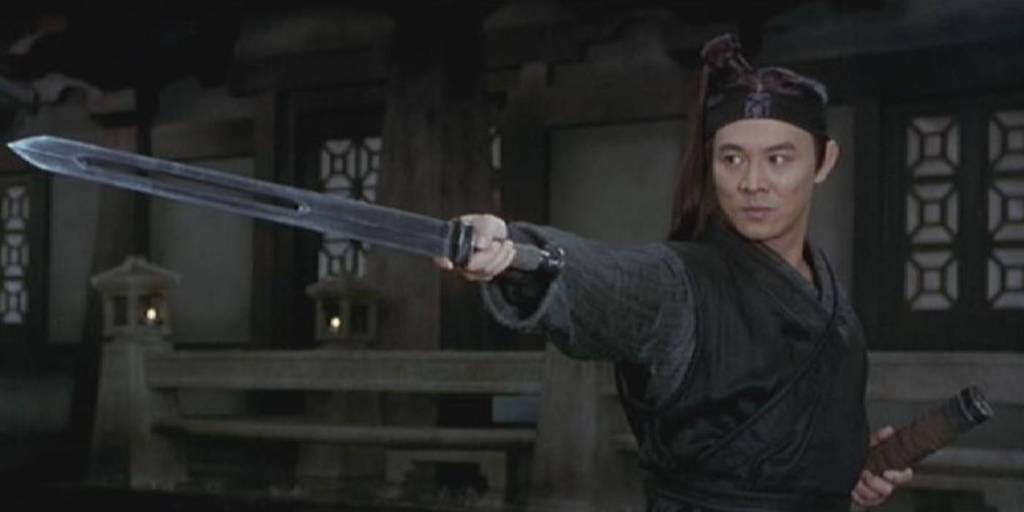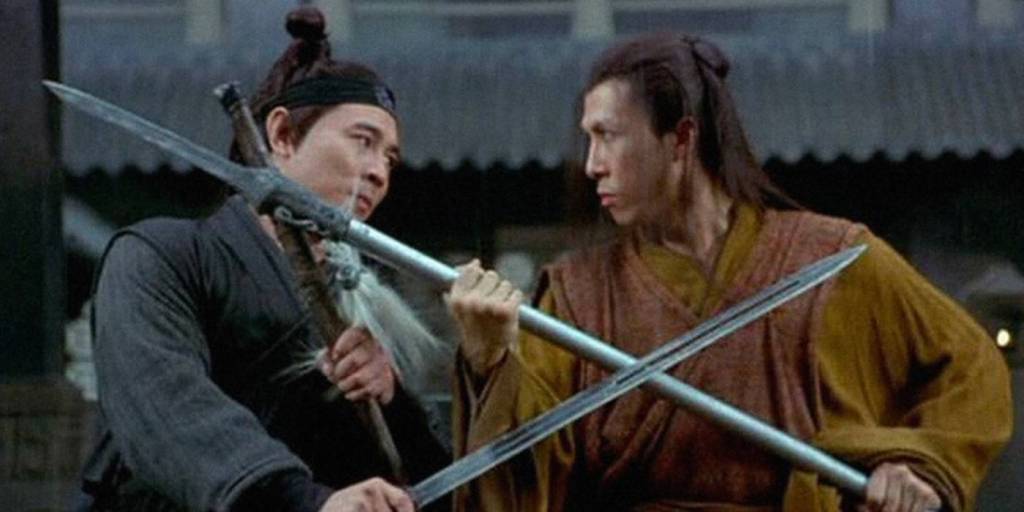Jet Li‘s wuxia epic Hero released in North America on this day in 2004, and it still holds a major box office record unbroken by any subsequent martial arts films. Directed by Zhang Yimou, Hero takes place during the time of China’s Warring States, with Emperor Qin (Chen Daoming) hoping to unite each of China’s disparate territories under his rule as a trio of assassins attempts to kill him. Emperor Qin is visited by a swordsman known as Nameless (Li), who claims to have slain the three assassins, with Nameless relating his story in a Rashomon-esque narrative from different perspectives and time periods.
Videos by ComicBook.com
Produced at height of Jet Li’s career as one of the most respected martial arts stars in cinematic history, Hero was a major hit upon its release in the United States and Canada, and continues to hold one major achievement: to date, Hero stands as the last Chinese-language movie to open at number one at the North American box office. Hero‘s success owes significantly to the involvement of one filmmaking voice in particular, while it also highlights that the metrics of success for martial arts films usually fall outside of the parameters of typical box office numbers.
Quentin Tarantino Was Instrumental for Hero’s Success

Originally released in China and Hong Kong in 2002, Hero waited a further two years to make its Western debut in 2004, with Quentin Tarantino being one of the key players to facilitate it. A devoted fan of martial arts films, Tarantino was just coming off of the success of his own two-part martial arts epic in Kill Bill Vol. 1 and Kill Bill Vol. 2, respectively released in 2003 and 2004. That coupled with Tarantino’s role in setting up the Western release of 1993’s Iron Monkey in 2001, effectively made Tarantino one of Hollywood’s major ambassador’s of Asian action movies, which played into his role in Hero‘s Western release.
Following Hero‘s 2002 debut in Asia, Miramax Films secured North American distribution for the movie, but had difficulty pinning down a North American release date before eventually settling on August 27th, 2004. Tarantino then became the American face of the marketing for Hero‘s Western release, the movie debuting with a “Quentin Tarantino presents” credit similar to the one used for Iron Monkey‘s North American release. Additionally, Tarantino also recorded an interview with Jet Li that was included on Hero‘s DVD release as a special feature.
In the end, adding Tarantino as a marketing face for Hero‘s North American release paid off, with the movie landing the number one spot at the box office with a strong $18 million opening, and concluding its North American run with an impressive $53.7 million total (which brought Hero‘s worldwide tally to $177.4 million against a $31 million budget). Hero‘s success in its North American release also made the film the fifth highest-grossing movie in a language other than English, even holding the number four spot for nearly two decades until the release of 2023’s Godzilla Minus One. Coupled with Hero earning a nomination for Best Foreign Language Film at the 75th Academy Awards, the boost Tarantino gave to its North American release was clearly quite beneficial to its overall popularity. With all of that said, the picture of Hero‘s theatrical success also makes it something of an anomaly among martial arts films (especially foreign ones) 21 years later.
Martial Arts Movies Are Rare Box Office Successes

Despite the popularity of martial arts films as a genre, it is actually relatively uncommon for them to emerge as breakout box office hits. While the success of Bruce Lee’s Enter the Dragon and the ’70s kung fu boom stands as the period where martial arts films were all over Western movie screens, their box office clout has since leveled off in the theatrical arena. There are certainly exceptions, with 2022’s Everything Everywhere All At Once a true sleeper hit, and the John Wick franchise continuing to be hugely popular among mainstream audiences. However, more often than not, martial arts films are more modest successes in theaters, as seen in most of Li’s own Hollywood career, with Romeo Must Die, Kiss of the Dragon, The One, Unleashed, and The Forbidden Kingdom all performing strongly but without setting records either. That is usually even more so the case if they’re being imported from other countries with subtitles.
For all the deserved popularity of The Raid movies, their North American releases had muted box office returns, while others like the Ong Bak and Ip Man movies typically see only limited North American theater runs before going to streaming and physical media. Others like 2024’s The Killer’s Game outright bombed, and even Keanu Reeves’ 2013 directorial debut Man of Tai Chi mostly came and went in its limited theater run before finding success on home media. That also highlights that the real epicenter of martial arts movie fandom lies not in movie theaters but in home theaters.
Most popular martial arts films have frequently built their reputation through word of mouth among fans pointing each other to new releases on home media, going all the way back to the VHS era. With the rise of DVD, Blu-ray, and streaming platforms, martial arts films have a far more centralized home within the homes of martial arts fans discovering them in a more direct way. Indeed, most break-out martial arts hits of the 21st century have done so as straight-to-video and streaming releases, such as The Night Comes for Us and The Shadow Strays on Netflix, alongside the six-season streaming phenomenon of Cobra Kai. Martial arts stars like Scott Adkins, Michael Jai White, Marko Zaror, Bren Foster, and others have all built thriving careers from popular martial arts films that never see a wide theatrical run. Additionally, foreign imports of movies anchored by Jet Li, Donnie Yen, Tony Jaa, Iko Uwais, and even many of Jackie Chan’s overseas films usually mostly side-step theaters and go straight to home media. Martial arts fans are possibly the fan base most accustomed to watching hits of their genre mainly at home, with the concentrated nature of martial arts fandom making that the most fertile ground for profitability. Even still, the odd theatrical martial arts box office hit is still something to be celebrated and cherished, and Hero stands as a true shining gem of a martial arts epic with subtitles becoming a genuine North American box office hit.
Hero is available to rent and buy Amazon Prime Video, Apple TV, Google Play Movies, and Fandango at Home.









